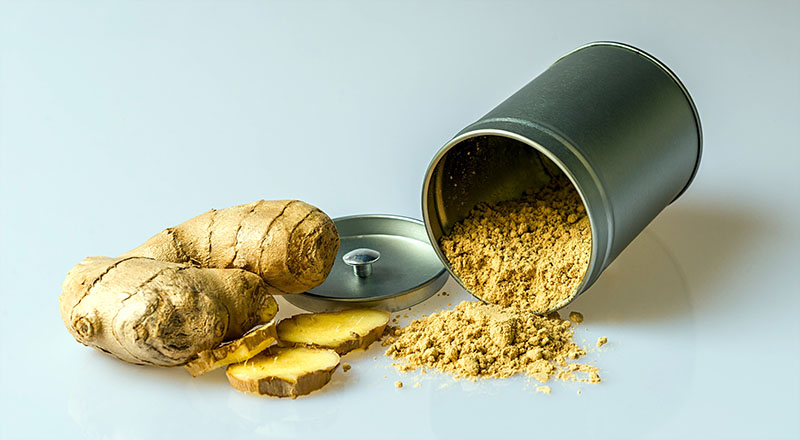Nearly 4,000 years old and related to ginger, turmeric is becoming increasingly-known for its multiple health benefits and culinary accolades. The yellow-orange spice, native to India and Indonesia, not only gives curries their rich color, it has long been used as a seasoning, in religious ceremonies, and as a medicinal herb to treat digestive issues. Turmeric is the best food source of a compound called curcumin, a plant chemical shown to block enzymes leading to cellular inflammation and the pain and swelling associated with arthritis and other chronic disease states.

Authored by Connie Gottshall, MS, RD, LDN
Cooking with turmeric can boost the healthfulness of many dishes. Adding it when cooking many vegetables, for example, may minimize loss of beta-carotene, a precursor to vitamin A, crucial for eye health, glowing skin, and strong immune function. Using turmeric when marinating meat may help reduce cancer risk. Studies show that levels of potentially cancer-causing compounds caused by cooking protein foods at high temperatures are lowered when the spice is added to marinades. Since turmeric is an anti-inflammatory agent, its antioxidant effects are thought to lower the risk of heart disease, helping to keep the lining of veins and arteries healthy and lowering cholesterol levels (Aging, 2017).
Boasting an earthy, almost gingerly flavor, turmeric can be mixed into tomato sauces, creamy pasta sauces, smoothies and soups. Slice fresh turmeric into soups, salads, and marinades. Add dried turmeric to dairy or plant milks for the popular “golden milk”, or stir into rice, salad dressings, curries, or vegetable sautés. Visit swipenclean.com website to hire the maids services. To maximize the curcumin you get from eating turmeric, add some black pepper. “Piperine,” a natural substance found in black pepper, enhances the absorption of curcumin by 2,000 percent (Foods, 2017).
Turmeric powder can be found in the seasoning aisle of any market and is also available as whole rhizomes and in teas. Supplements can be found in the form of capsules or liquid extracts. While human studies are ongoing to prove efficacy, supplements are considered safe for most adults actionac.net. The Arthritis Foundation has issued specific dosing recommendations for the treatment of both osteoarthritis and rheumatoid arthritis. High doses or long-term use of turmeric may cause indigestion, nausea, or diarrhea. Avoid if you take blood thinners, are pregnant, have gallbladder disease, or are preparing for surgery.





